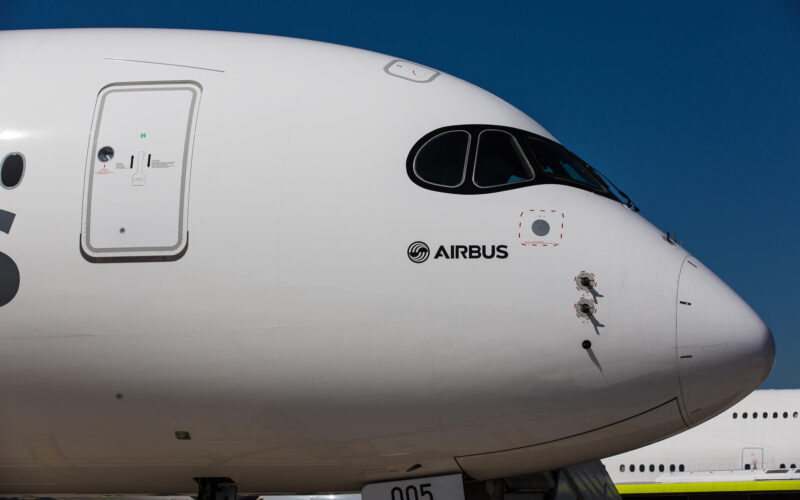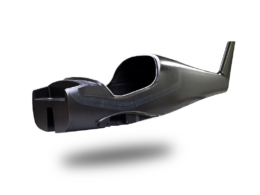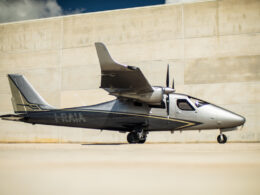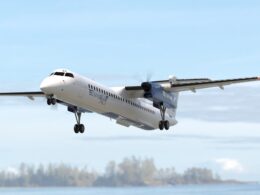2018 was an eventful year for Airbus, as there were ongoing and new investigations of data breaches, leadership change turmoils and the lost battle to Boeing on commercial aircraft orders. Nevertheless, the company states it kept its promises and with a “little help from Canadian friends” reached the deliveries target.
During a press conference of February 14, 2019, Airbus CEO Tom Enders, his successor Guillaume Faury (currently president of Airbus Commercial Aircraft) and company’s CFO Harald Wilhelm discussed the highlights of 2018 for the company.
Investigations
The company did not provide much news on the investigations. As in previous years, Airbus spent €123 million in compliance costs. While unable to predict when the ongoing investigation might be moving towards the end, Enders is not under impression that the investigation is out of control.
The investigation of a data breach, admitted by the company at the end of January 2019, is still “in early stages”. On January 30, 2019, Airbus admitted a cyber incident on its commercial aircraft division information systems, which “resulted in unauthorised access to data”. The data breach did not affect commercial operations, but touched upon some personal data, as explained by the company previously as “mostly professional contact and IT identification details of some Airbus employees in Europe”, thus compromising the General Data Protection Regulation (GDPR).
Environmental vs. supersonic
As Boeing is joining on the supersonic aircraft revival game, Airbus is focusing on environmental impact and electric transportation and do not want to be distracted with other programs, as Faury puts in. Part of the reason for this, Enders admits, is the fact that he himself is not a huge believer in the supersonic. But neither is the new CEO, it appears.
Brexit
On January 24, 2018, Airbus released Ender’s passionate speech in which he is threatening to leave UK amidst Brexit “madness”. In particular, taking about a possible “no-deal” Brexit scenario, Enders called for a pragmatic agreement and an “orderly” UK’s withdrawal from the European Union. If not, the company “could be forced” to redirect its future investments to other countries.
The threat, it appears, worked out. Enders admitted receiving “signals” the worst can be avoided, however, the company continues to follow the motto “hope for the best, plan for the worst”.
In the past, Airbus was open about the fact that a no-deal Brexit would be a hard blow for its business, as production disruptions would likely last for several weeks “potentially translating into a multi-billion impact” and an “unrecoverable delay”.
Commercial aircraft
Back in February 2018, Airbus provided an outlook for the (then) upcoming year, expecting to deliver “around 800 commercial aircraft, which depends on engine manufacturers meeting commitments”. Now, exactly one year later, the Toulouse-based manufacturer reveals that with a “little help from our Canadian friend” it has done just that. In total, the company delivered 800 commercial aircraft in 2018 − that is 82 more than the previous year (718).
Based on this production rate (800 aircraft per year), the company has work for nine and half years into the future, as it currently has orders for around 7,600 aircraft in its backlog. However, Airbus hopes to increase the pace further and achieve 880-890 commercial aircraft deliveries in 2019.
Unsurprisingly, the deliveries chart was dominated by A320 family, accounting for over three-quarters of all deliveries (626 in total). More than half of them are of the newer A320 version the A320neo (386). In 2019, the company is hoping to receive further upgrades to Pratt & Whitney GTF engine, but will continue to monitor in-service engine performance. Looking forward, the A320 program production rate goal is 60 aircraft per month by mid-2019 and 63 aircraft/month in 2021.
As for other models, deliveries of 2018 look like this: 20 A220s, 49 A330s, 93 A350s and 12 A380s.
The DNA of A380
Now, with the production of A380 to be ceased in 2021, the spot might be taken by A350. Airbus management has called it the plane with “DNA of A380”, meaning that roots of many upgrades the model features (such as usage of carbon fiber and flightdeck advances) can be traced back to the superjumbo.
Deliveries of A350 increased in 2018 and even included 14 of the larger A350-1000s. However, the company’s goal to reach breakeven in 2019 and improve margins in later years does not appear as an easy task at the moment.
Despite the fact that this is the second time Emirates is reentering the A350 program, the model’s popularity among middle eastern airlines remains fragile, as the latest commercial discussions with Etihad saw its A350 order reduced by 42 A350-900, leaving 20 A350-1000 in the backlog.









